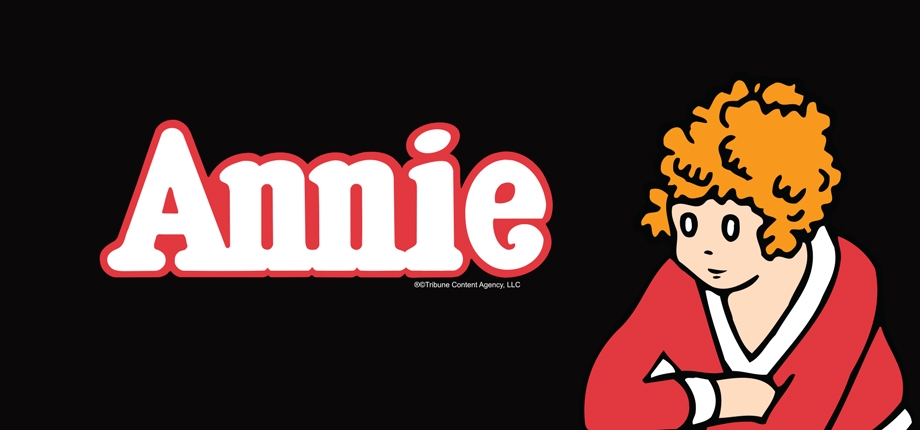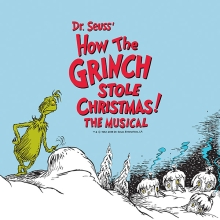Filichia Features: When You Do Annie...

Filichia Features: When You Do Annie...
Thanks to the current production of Annie at the Paper Mill Playhouse in Millburn, New Jersey, I saw the 1976-77 Tony-winning Best Musical for the 17th time.
That dates back to Oct. 3, 1976, the final performance of the tryout at the Goodspeed Opera House in East Haddam, Connecticut. Neither Dorothy Loudon nor "Little Girls" was yet in the show.
The potential for smash-hit legendary success, however, was very much in place for conceiver, lyricist and director Martin Charnin, composer Charles Strouse and bookwriter Thomas Meehan.
Meehan was Rookie of the Year, for he'd never written a libretto in the first 50-odd years of his life; after Annie he was sought after and saw his name on ten more musicals to reach Broadway, including two - The Producers and Hairspray - that outran his first-born.
When your third-greatest hit is Annie, you know that you've really accomplished something.
So with all the productions I've seen (as well as the three film versions), I've noticed a number of decisions made or not made - ones that I feel may enhance your upcoming production of Annie (which you and I know you'll do someday - or someday again).
- Seems to me that as Annie has gotten older, Annies have become younger. To be the sharp leader of the other orphans (which Meehan shrewdly made her) Annie needs street smarts, which take time to hone.
- Some productions have Miss Hannigan in her opening scene not hide the fact that she drinks; indeed, she chug-a-lugs blatantly in front of the orphans. Perhaps have her clandestine about her knocking back the rotgut so later, during "It's the Hard-Knock Life," when Molly, the tiniest orphan, mimes Hannigan's glugging, we see the kids are smarter than she thinks and that she is mistaken in thinking that she's getting away with it.
- "She never misses," Miss Hannigan moans when an orphan steps on her foot. It could be an accident from a clueless kid who hasn't yet been able to maneuver around people and understand personal space. Hannigan has punished kids for much less. So it must be an accident -- or, an accident-on-purpose that Hannigan can't q-u-i-t-e prove had malice aforethought.
- The temptation is there to make Lily St. Regis, Rooster's girlfriend, a bubble-headed squeaky-voiced stereotype. But don't overdo it: Lily must later be a convincing Mrs. Shirley Mudge when she pretends to be Annie's mother. That's when her voice must become lower-middle-class normal. We can't believe that Lily can pass for a rural workaday woman if early on she adopts a voice that suggests a castrato on helium.
- After Rooster pulls out a knife and indicates that he'll murder Annie after they get her and the reward money, the expression that Beth Leavel gives out at Paper Mill is one that I've never noticed any one of the 14 Hannigans I've seen give it. Leavel gives a wide-eyed grisly and isn't-that-extreme grimace that shows she wouldn't want that to happen at all. Hannigan is a tough woman, but not that tough.
- When Rooster is leaving Hannigan after their first scene together, he bumps into the incoming Grace Farrell and says "Excuse me, Blondie." This is an important plot point to be cleanly staged for everyone to see and hear -- because it pays off later when Rooster is pretending to be Annie's father. As he exits, he again bumps into Farrell and says "Excuse me, Blondie" which triggers Grace's mind into remembering that she'd met him before. Many productions have had Rooster face upstage and say the line as soon as Grace is entering. No, let her come in a few steps so that she can be downstage and the audience can see and hear this important moment.
(How well I remember attending Annie's second official performance on April 22, 1977, the night after the New York critics had raved. When Rooster said his second "Excuse me, Blondie," the audience gave out with a solid "Hmmmmm!" as Grace reacted. Now everyone knew how Warbucks and Annie would get out of this pickle. That sound also showed that Meehan had found a great and convincing way to solve the issue.)
Hope this helps! And, apropos of nothing at all, if you've ever wondered what Warbucks' $50,000 reward would be in today's money, I've done the math: $934,329.55. Now you know!
You may e-mail Peter at pfilichia@aol.com. Check out his weekly column each Monday at www.broadwayselect.com and Tuesday at www.masterworksbroadway.com . His book, The Great Parade: Broadway's Astonishing, Never-To-Be Forgotten 1963-1964 Season is now available at www.amazon.com.

























